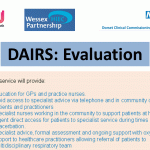 With working at a university and the rise of the REF, you would have almost certainly come across the terms ‘impact’ and ‘outcomes’. Whilst there might be a great deal of similarity and overlap in the use of these terms, it is important to discuss the sometime subtle differences between ‘impact’ and ‘outcome’. What consequences might this have for the design of social research?
With working at a university and the rise of the REF, you would have almost certainly come across the terms ‘impact’ and ‘outcomes’. Whilst there might be a great deal of similarity and overlap in the use of these terms, it is important to discuss the sometime subtle differences between ‘impact’ and ‘outcome’. What consequences might this have for the design of social research?
The health and social care literature uses these terms in a rather haphazard manner. The differences are rarely discussed and it can be suggested that many use the wrong terminology. In this blog post on the LSE Impact of Social Sciences Blog, relating to the field of information and advice on welfare issues, I briefly discuss and propose that there are fundamental differences between what an impact refers to and what an outcome refers to. Furthermore, I suggest that these differences are significant and profound enough to align each to opposing research methodologies.
These thoughts relate to the key areas of my PhD project with Elderly Accommodation Counsel (EAC) in London. EAC coordinates the FirstStop service which provides information and advice to older people (and other stakeholders) on housing and care issues. My research is focused on how older people use information and advice on housing and the wider impact that this has.
If anyone has an interest in this area, do get in touch!
 Evaluation mixed-methods research grant awarded to FHSS team
Evaluation mixed-methods research grant awarded to FHSS team










 Beyond Academia: Exploring Career Options for Early Career Researchers – Online Workshop
Beyond Academia: Exploring Career Options for Early Career Researchers – Online Workshop UKCGE Recognised Research Supervision Programme: Deadline Approaching
UKCGE Recognised Research Supervision Programme: Deadline Approaching SPROUT: From Sustainable Research to Sustainable Research Lives
SPROUT: From Sustainable Research to Sustainable Research Lives BRIAN upgrade and new look
BRIAN upgrade and new look Seeing the fruits of your labour in Bangladesh
Seeing the fruits of your labour in Bangladesh ECR Funding Open Call: Research Culture & Community Grant – Apply now
ECR Funding Open Call: Research Culture & Community Grant – Apply now ECR Funding Open Call: Research Culture & Community Grant – Application Deadline Friday 12 December
ECR Funding Open Call: Research Culture & Community Grant – Application Deadline Friday 12 December MSCA Postdoctoral Fellowships 2025 Call
MSCA Postdoctoral Fellowships 2025 Call ERC Advanced Grant 2025 Webinar
ERC Advanced Grant 2025 Webinar Update on UKRO services
Update on UKRO services European research project exploring use of ‘virtual twins’ to better manage metabolic associated fatty liver disease
European research project exploring use of ‘virtual twins’ to better manage metabolic associated fatty liver disease